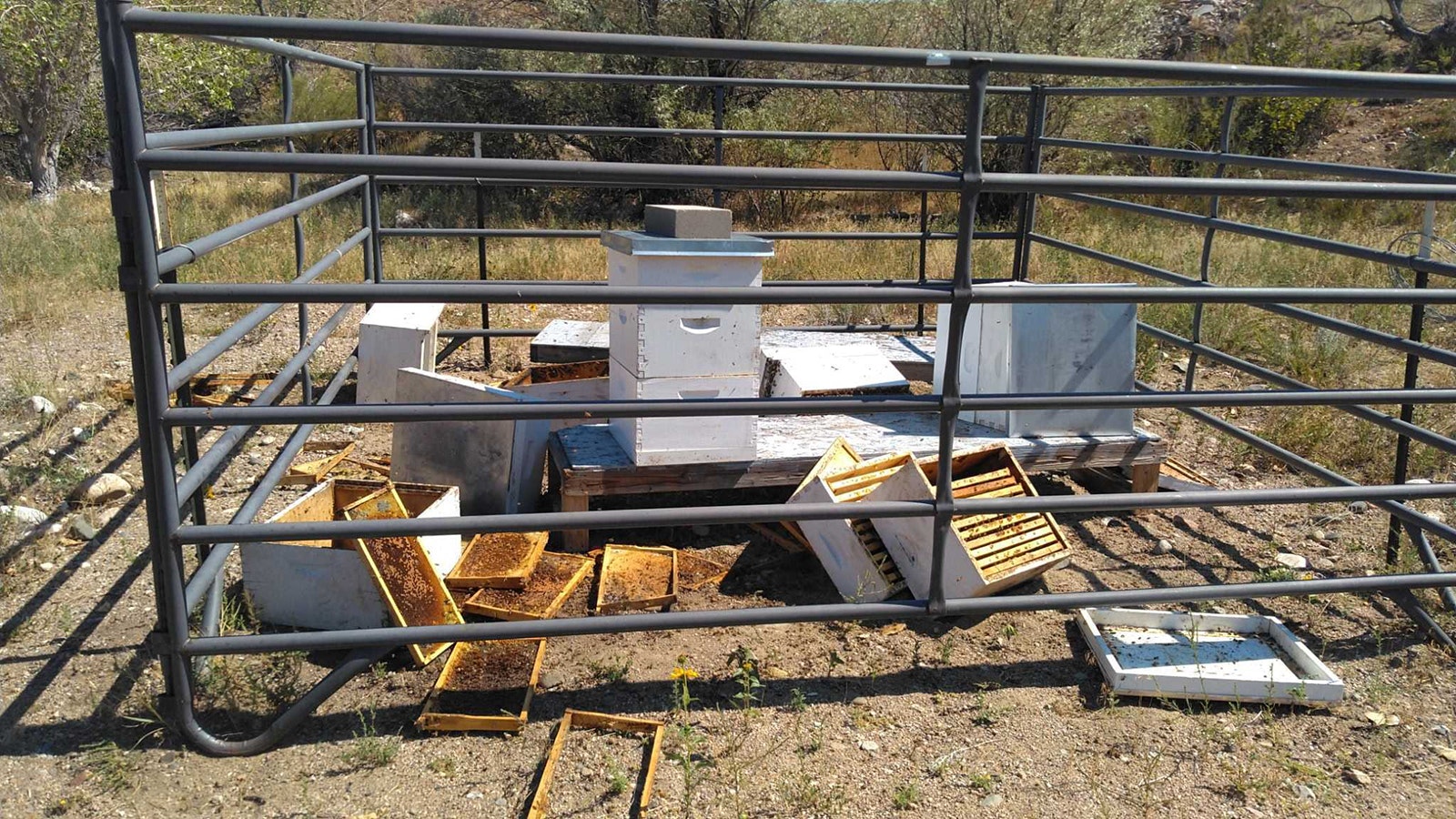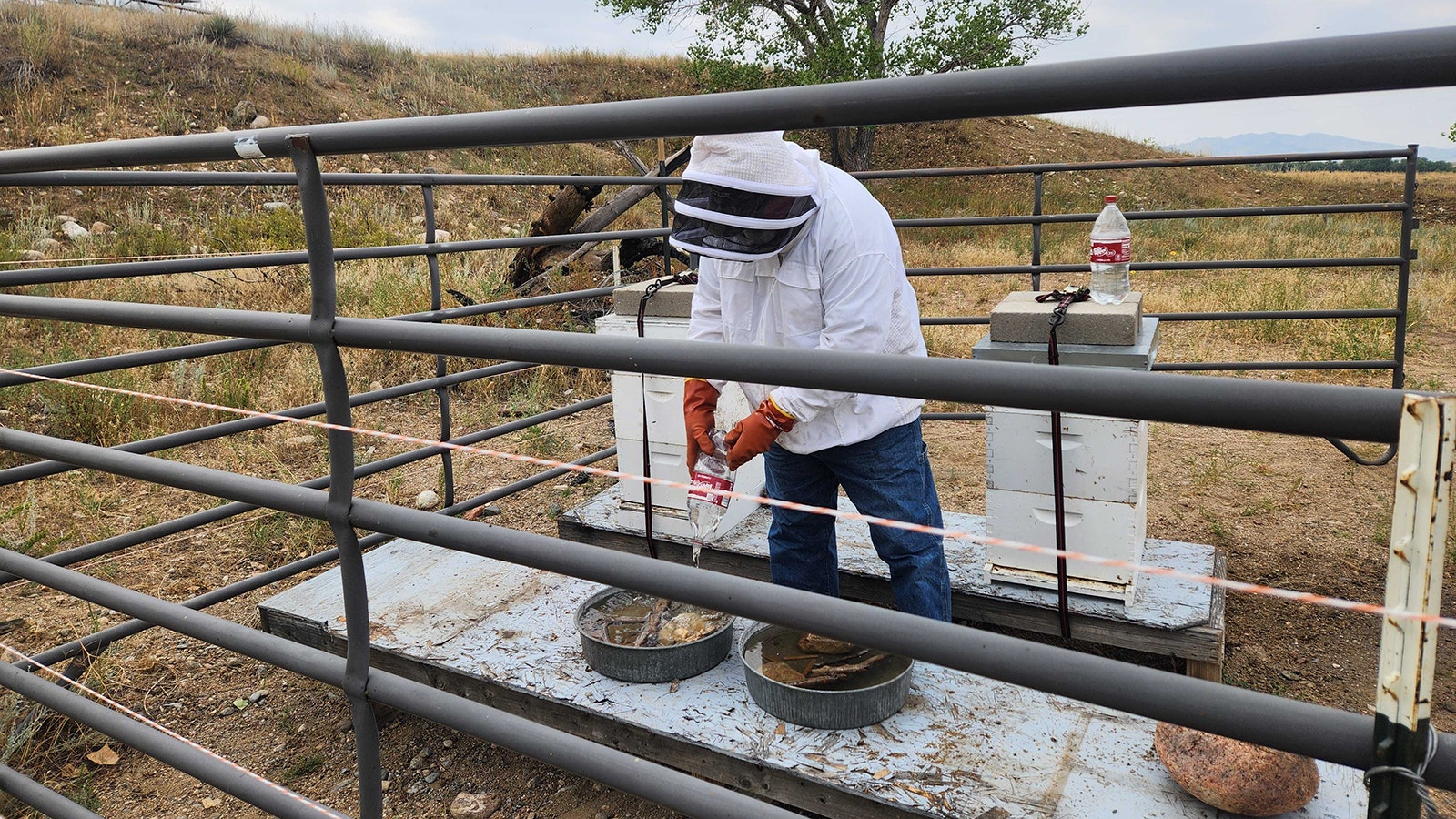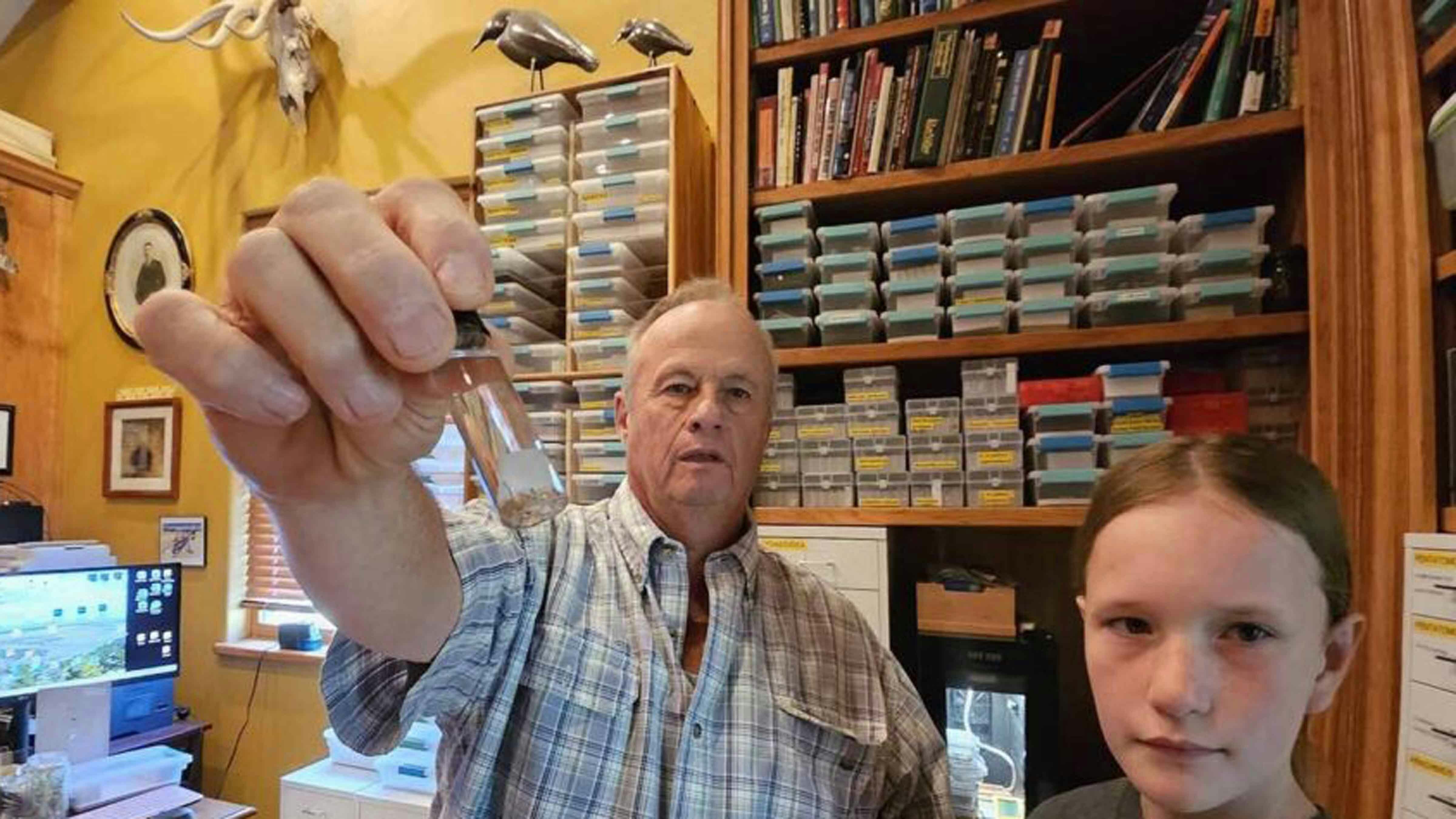WHEATLAND — Wheatland beekeeper Pete Herman is still reeling from an attack that struck in the dead of night.
A neighbor informed Herman that their dogs began barking and howling loudly around 11 p.m. Sunday for seemingly no reason.
In the morning, Herman visited his bees to discover two of the four hives had been torn open and gutted of their precious honey.
“Our jaws dropped,” Herman told Cowboy State Daily. “It looked like somebody threw a grenade.”
With the help of a game warden from the Wyoming Game and Fish Department, Herman scoured the scene for clues, eventually recovering a light brown tuft of fur that indicates the culprit was likely a hungry bear.
These attacks, Herman said, are an unfortunate reality in an otherwise sweet business.
“You’re disappointed, you’re upset,” Herman said of his emotions upon finding the fur. “But you can’t blame the animals.”

'Little Bastard'
Herman has since named the bear “Little Bastard."
At the recommendation of Game and Fish, Herman set up a trail camera in hopes of catching a glimpse of the honey hijacker and installed an electric fence around his hives to further deter the bear from returning.
Even with these precautions in place, Herman said the odds of another visit are “50-50,” depending on whether the bear is a local or just passing through.
While none of his neighbors spotted Little Bastard in the act, Herman explained bear attacks are a common concern for beekeepers.
Two of his neighbors who also keep bees also had their hives attacked by bears this spring.
Bears, he said, are especially resilient to bee stings and will persist through an angry swarm just to get a taste of sweet honey.
“I’m worried he’s going to come back,” Herman said of Little Bastard.
The attack caused about $1,200 worth of damage and set him back about one year worth of beekeeping time, Herman said.
Both hives lost their queen bees, which Herman explained is a particularly devastating blow.
“They’re my girls, I like them,” he said. “You still cry when your girls get hurt.”

Rebuilding
Herman is no stranger to constantly rebuilding his beekeeping operation.
He had to start completely from scratch about three years ago after a neighboring farmer sprayed his field with chemicals that killed all of his hives.
To recuperate the damage done by Little Bastard, Herman said he is relying on a neighboring beekeeper who is splitting bee colonies with him. Herman said he often cooperates with nearby beekeepers who assist one another during times of trouble.
Herman began keeping bees more than 20 years ago and said he used to keep as many as 470 colonies while running his beekeeping operation as a full-time business. Now, he operates Free Range Honey as a hobby.
Even as a hobbyist, Herman estimates he used about $4,000 worth of equipment just to keep his bees happy and healthy.
“My wife told me, ‘You need to make a decision, this is getting expensive,’” Herman said. “I can’t quit. I like it too much.”
Herman's honey is popular and is delivered as far away as Florida to customers who believe it may act as a remedy for some allergies.
While these claims can’t entirely be backed up by science, Herman said he leaves his honey raw, rather than pasteurizing it, to preserve its natural enzymes and pollen.
“I just love bees,” he said. “They’re so fun and the taste of the honey over store bought, there’s no comparison.”

The Bears And The Bees
Wyoming is home to about 800 of the country’s 4,000 native bee populations, according to the University of Wyoming. This makes bees the state’s “most important pollinators.”
Wild bee populations around the U.S. have been on a steady decline for the last 15 years, because of factors such as the use of some pesticides, global warming and parasites, according to the university.
Wyoming, however, is an especially good state to keep bees, said Michael Jordan, founder of Cheyenne-based A Bee Friendly Company.
“The state of Wyoming is a great place to house bees,” he said. “We don’t have a lot of herbicides or pesticides that go into our water system.
“Having bees here is very great news, it brings a lot of diversity for a lot of people."
Jordan also touched on bear attacks and how damaging they can be to beekeepers.
“Beekeeping is an expensive hobby, they call it the eccentric man’s sport,” he said. “It’s really devastating because the gentleman has $200 invested in an insect, and then he has about $200 invested in the hive to occupy that colony of insects.
“He’s probably got another $200 to $300 that he’s invested in education so he can keep and harbor those insects, and then he’s probably got two to three years to build that colony to where it’s stable enough for the bear to want to attack.”
Jackson Walker can be reached at walker@cowboystatedaily.com.





